legislation
Latest

Israel barred from COVID-19 phone tracking without new legislation
Israel's Supreme Court has ruled that the government must draft a new law if it wants to keep tracking phones of COVID-19 sufferers.

Senators want to ban TikTok from government phones
All federal government employees could soon be banned from downloading TikTok on work-issued smartphones. Senators Josh Hawley (R-Missouri) and Rick Scott (R-Florida) have introduced a bill that would do just that, claiming the social media app poses a national security threat. If passed, the 'No TikTok on Government Devices Act,' would bar employees of the federal government from installing the short form video app on official phones. Though, it makes exceptions for research, investigative, and national security purposes.
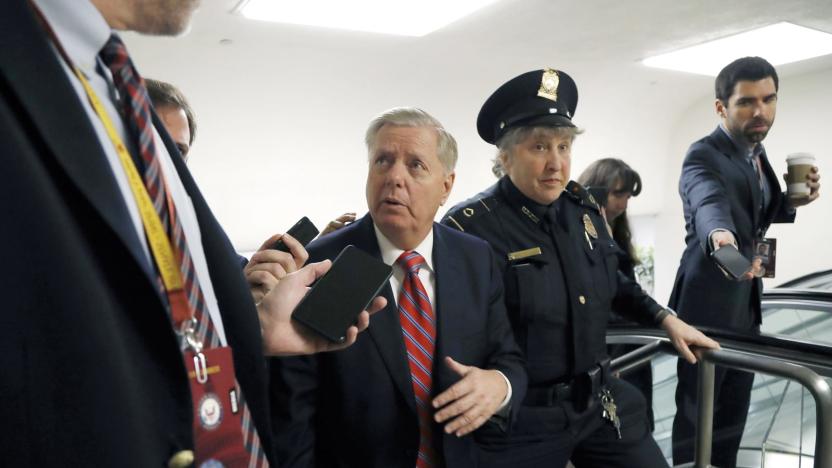
Draft bill could penalize companies for using end-to-end encryption
Politicians may be looking for a roundabout way to thwart end-to-end encryption. Senator Lindsey Graham is drafting a bill, the Eliminating Abusive and Rampant Neglect of Interactive Technologies (EARN IT) Act, that would modify the Communications Decency Act's Section 230 to make companies liable in state criminal cases and civil lawsuits over child abuse and exploitation if they don't follow practices set by a national commission. Some of these would be relatively uncontroversial, such as offering parental controls and setting age limits with disclosures. However, the bill also includes requirements to "preserve, remove from view, and report" material as well as retain evidence, and there's a concern these could be used as pretexts for punishing the use of end-to-end encryption that would make some of this data inaccessible.

UK proposes tougher security for smart home devices
The UK government plans to introduce a new law designed to improve the security standards of household products connected to the Internet of Things (IoT). The legislation stipulates that all consumer smart devices sold in the UK -- such as smart cameras and TVs, wearable health trackers and connected appliances -- adhere to three specific requirements.

President Trump signs anti-robocall TRACED Act into law
A key bill to curb the robocall scourge is now the law of the land. President Trump has signed the TRACED Act, toughening the punishments for illegal robocalls and accelerating telecoms' efforts to block spam. Fines for robocalls now reach up to $10,000 per illegal call (and don't require a warning), and carriers must implement call authentication (already in use) to help prevent spoofing. The FCC has work to do, too -- it'll have to set rules determining when networks can block calls, and to prevent unauthenticated calls and texts from reaching phone subscribers.
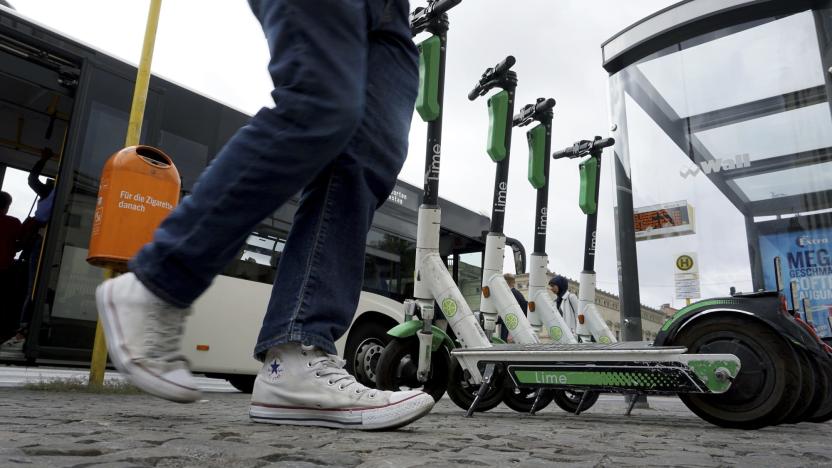
New York Governor vetoes bill to legalize e-bikes and e-scooters
New York had been set to legalize electric bikes and scooters, which would have allowed sharing programs like Bird, Lime or Jump to come to markets including New York City. However, Governor Cuomo has vetoed the bill, meaning e-bikes and scooters will continue to be illegal in the state.
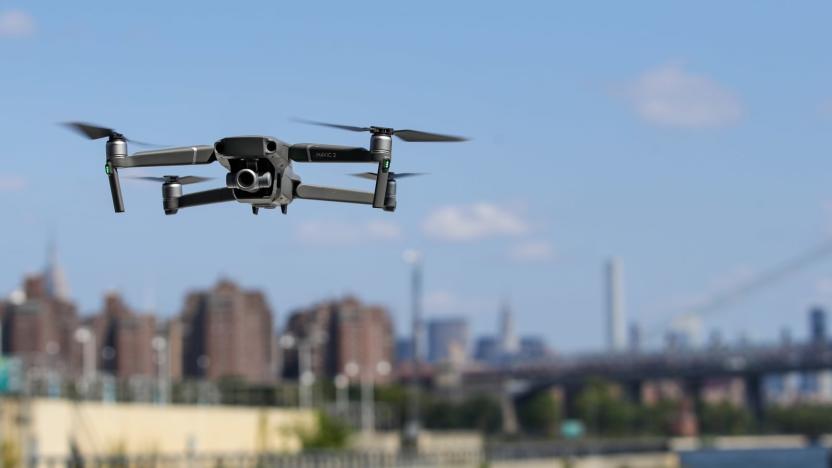
Proposed NYC law would require drone inspections for building complaints
Drones could soon be key to keeping New Yorkers safe from crumbling architecture. Members of the New York City Council have proposed legislation that would require drone inspections within 48 hours of a complaint or confirmed violation. A robotic vehicle (not the Mavic 2 Pro pictured) would use infrared and a pair of conventional cameras to both look for the telltale temperature changes of cracks and inspect roof conditions. The intended drones would cost $2,500 each, but the proposal would reduce costs by offloading the inspections to private companies that would charge building owners.

Congress approves the TRACED Act to fight robocalls
Today, Senate approved the TRACED Act, or Telephone Robocall Abuse Criminal Enforcement Act. The legislation could give the government new powers to prosecute robocallers, The Washington Post says. It would also require carriers that authenticate and block spam callers to share those services with customers for free.

Congress is raising the minimum smoking and vaping age to 21
Congress just raised the legal age to smoke or vape to 21, BuzzFeed News reports. The law will go into effect sometime next year, and it will cover all nicotine products.

Putin signs law requiring Russian apps on smartphones, TVs and PCs
Russian President Vladimir Putin has signed legislation that bans the sale of smartphones, computers and Smart TVs without Russian apps pre-installed. The law will come into force on July 1st of next year, but before that, the government will create a list of Russian applications that must be pre-installed on various devices, according to Reuters.

Russia bans the sale of devices without Russian software
Earlier this month, Russia signed a law giving it the power to censor the internet. Now, it has passed another law banning the sale of smartphones, computers and smart TVs that don't have Russian software pre-installed, the BBC reported. Those devices can still be sold with their normal software, but Russian alternatives must be installed, as well. However, critics have said that's not possible on certain devices, and the law could force some international companies to leave the market.
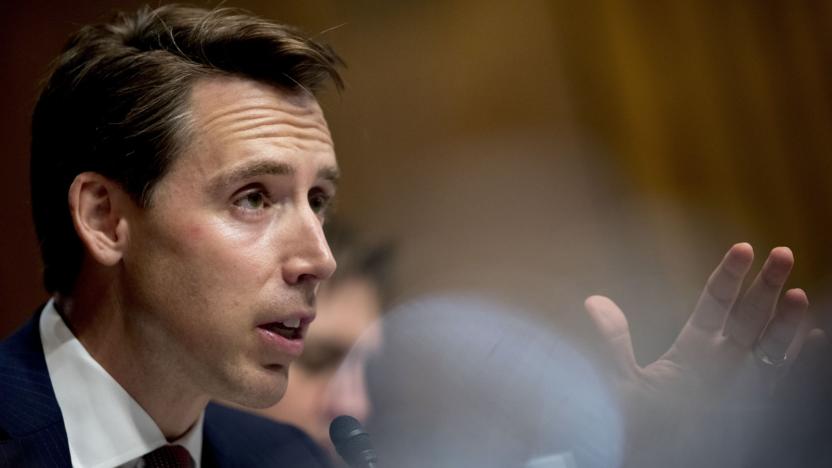
Senate bill would block US companies from storing data in China
US Senator Josh Hawley (R-Missouri) wants to make it illegal for US companies to store user data or encryption keys in China. He also wants to prevent Chinese companies from collecting any more info from American users than is necessary to provide their service. He proposed these measures as part of a new National Security and Personal Data Protection Act announced today.

Apple 'surprised' by Germany's new law to open up mobile payments
Germany has introduced new legislation to deal with money-laundering, and it's causing problems for Apple. On Thursday, the German Parliament passed a raft of new measures to bring the country in line with EU directives on money laundering. These include stricter regulations for real estate agents, notaries, auction houses, and operators of electronic money infrastructure. The legislation didn't specifically name Apple nor Apple Pay, but it basically means Apple and Apple Pay.
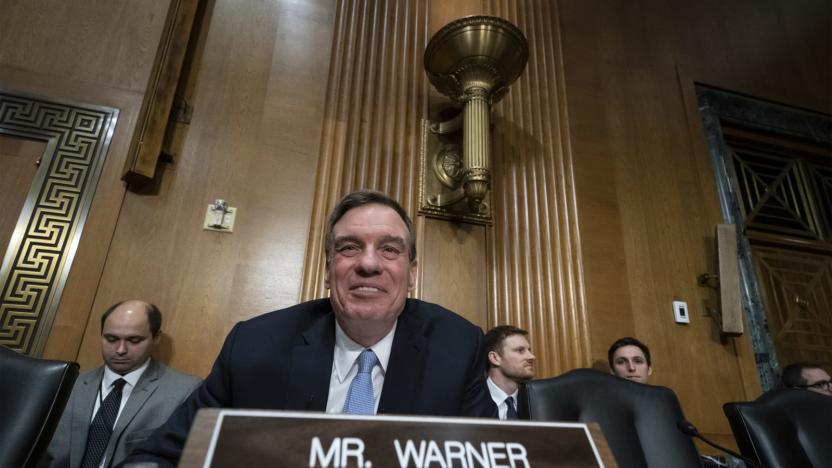
Senate bill aims to make user data 'portable' across social networks
Three senators think they have a way to address some of the antitrust concerns around social media companies. Today, Sens. Mark R. Warner (D-Virginia), Josh Hawley (R-Missouri) and Richard Blumenthal (D-Connecticut) will introduce a bill that would force social media companies to make user data "portable," so that it can be easily transferred to competing (read: smaller) services.

Senator Wyden pushes his ‘Mind Your Own Business’ privacy act forward
Senator Ron Wyden (D-OR) is advancing his data privacy bill. Today, he shared his "Mind Your Own Business Act" an official version of the draft legislation we saw last year. Like the draft, the official version would give the Federal Trade Commission more power, like the ability to fine tech companies for user privacy violations.

A House bill could cap the concentration of nicotine in e-cigs
As part of a growing effort to reduce teen vaping, US Rep. Raja Krishnamoorthi (D-Illinois) has proposed legislation that could put a cap on the concentration of nicotine in e-cigarettes, CNN reports. The bill would limit nicotine content to no more than 20 milligrams per milliliter. According to Krishnamoorthi's office, the goal is to make e-cigs "significantly less addictive and appealing to youth."

Amazon wants to write the rules regulating facial recognition tech
Amazon is drafting laws to regulate facial recognition technology, Vox reports. Supposedly, the company hopes that federal lawmakers will adopt its proposal as legislation. "Our public policy team is actually working on facial recognition regulations; it makes a lot of sense to regulate that," CEO Jeff Bezos said in an appearance following Amazon's hardware event yesterday.

Congress plans to investigate how social media giants are fighting hate
House lawmakers plan to unveil legislation to study the ways social media can be weaponized, The Washington Post reports. They want to better understand social media-fueled violence and to determine if tech giants are doing enough to effectively protect users from harmful content. Congress isn't just looking at what tech giants say they'll do to fight online hate and extremism. Lawmakers want to know if those efforts are effective or not.
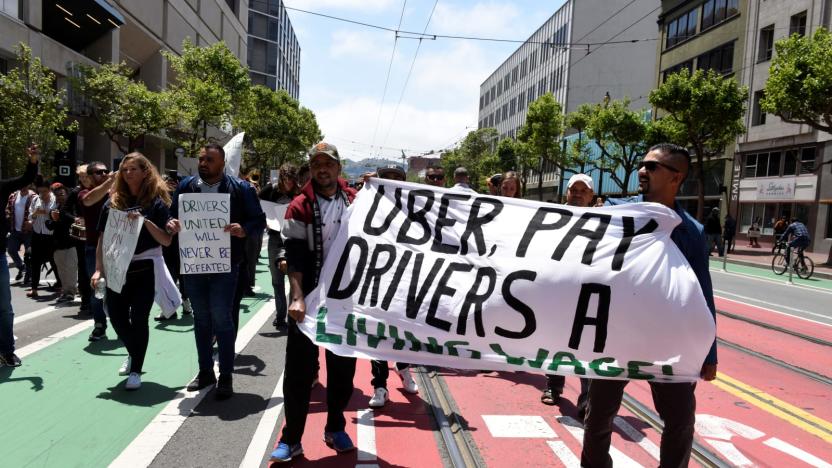
California governor signs labor law meant to fix the gig economy
It was really just a matter of time, but it's now official: California Governor Gavin Newsom has signed the state's Assembly Bill 5 into law. The measure is intended to reclassify many gig economy workers as employees by applying a test that determines whether or not they qualify as contractors. If they do, they have to be free from the control of a company, handle work beyond the typical scope of that company's business and routinely engage in an independently-formed business similar to the work they perform. In theory, this will force many ridesharing and courier companies to offer rudimentary labor rights like minimum wage, overtime and paid leave.

New York state bans sales of flavored e-cigarettes
New York isn't waiting for the federal government to take action on teen vaping. Governor Andrew Cuomo has announced an "emergency executive action" that will ban sales of flavored e-cigarettes. The move will see the state Department of Health's Commissioner hold an urgent meeting with the Public Health and Health Planning Council to implement the ban. E-cig makers and stores are "intentionally and recklessly" trying to court a younger audience, Cuomo claimed, and this would theoretically put a stop to the behavior.





